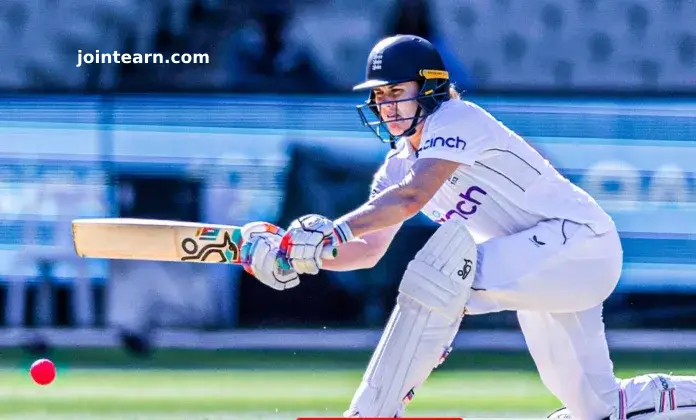England’s cricket team has entered a new era with Nat Sciver-Brunt taking over as the full-time captain after Heather Knight’s remarkable nine-year tenure. The transition comes at a pivotal time for the team, following a challenging year that saw a 16-0 Ashes defeat earlier in January.
Sciver-Brunt, known for her all-rounder prowess, has previously served as vice-captain under Knight. After returning from maternity leave, she will lead the England side with a fresh approach, says head coach Charlotte Edwards. Edwards, who took over the reins herself, emphasized the importance of giving Sciver-Brunt the freedom to lead in her own style.
“We are starting with a blank canvas,” Edwards said at the launch of the 2026 ICC Women’s T20 World Cup at Lord’s. “She’s unassuming, but one of the best players in the world. On match days, she will have the reins to go and do what she does best, which is lead by example.”
Sciver-Brunt’s leadership will be tested soon, with a white-ball series against the West Indies starting on May 21, followed by matches against India, who will host the Women’s World Cup in September. Despite having captained in 11 T20 internationals and one ODI, Sciver-Brunt faced challenges when stepping in for Knight under high-pressure situations, including the Commonwealth Games and last year’s T20 World Cup defeat to West Indies.
However, Edwards defended Sciver-Brunt, dismissing any concerns about her leadership in those instances. “The criticism she received was unjustified,” Edwards stated. “It’s difficult to dip in and out of captaincy, and those results shouldn’t be a reflection of her leadership skills.”
With Sciver-Brunt’s increased workload as captain, there had been concerns about balancing her responsibilities as one of England’s top batters and bowlers. Edwards, however, expressed confidence that she could help alleviate some of this pressure, allowing Sciver-Brunt to focus on her on-field performances.
In addition to Sciver-Brunt’s leadership, Edwards is also focused on addressing the lack of succession planning for leadership roles, a criticism that emerged during Knight’s long reign. “We are creating a leadership group for different series and formats,” Edwards explained. “We want to give players experience and a voice in shaping the team’s future.”
As part of the team’s transformation, Edwards also confirmed that Knight would not be part of the leadership group. She hopes Knight will have the space to enjoy her cricket once again without the added pressures of captaincy.
After the England team faced scrutiny for their Ashes collapse, Edwards acknowledged the need for changes in both on-field and off-field approaches. “We are going to alter how we engage with social media and focus on our professional behaviors,” Edwards stated, while expressing optimism that the team would quickly move in the right direction.
As Sciver-Brunt takes the helm, England’s women’s cricket team looks to build a new chapter, where leadership, communication, and future planning will be key to their success.












